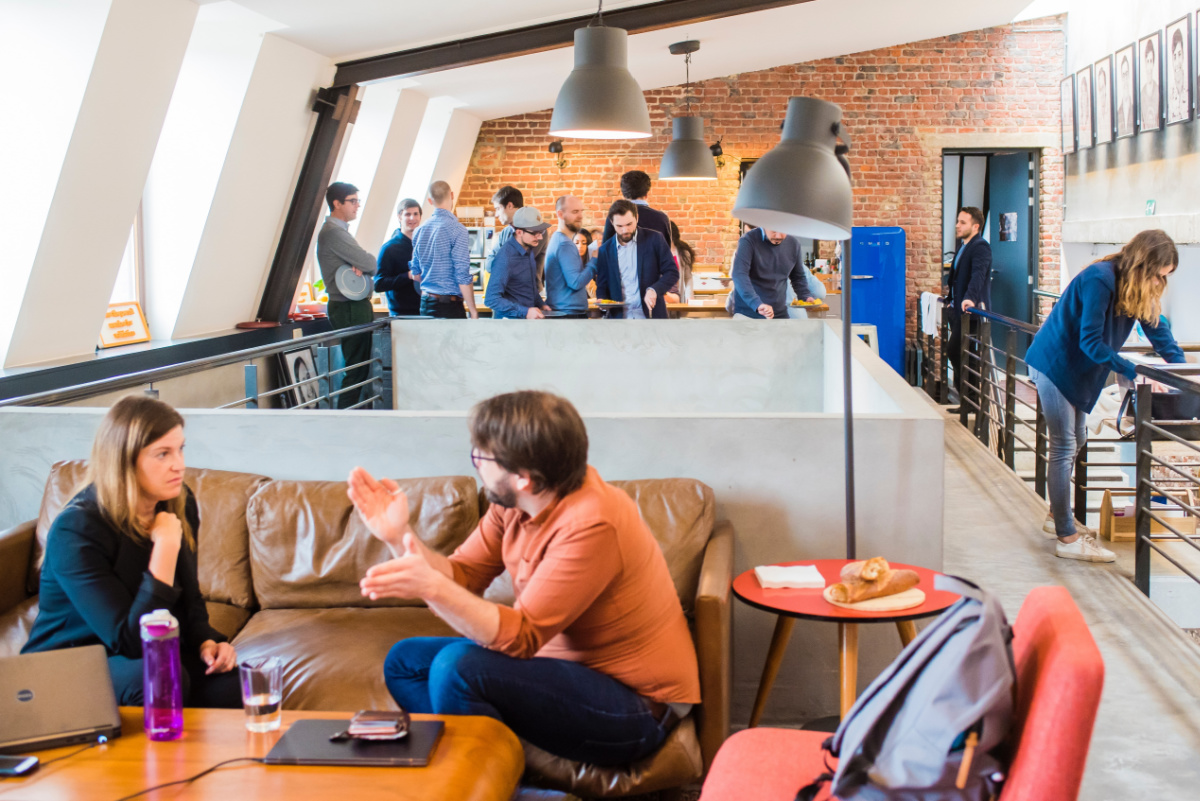How to foster a positive remote and hybrid workplace culture with flexible workspaces
Dec 8, 2023
6 mins read
Employee Experience
Fostering a positive remote or hybrid workplace culture is a focus for many companies because it’s not as straightforward as it might have been when teams were all in a physical office five days a week.
It takes thoughtful approaches and various strategies that differ in effort and creativity from what they might have previously used with their in-office employees.
Companies like Thumbtack have discovered that it’s still necessary to bring teams together in person. Alysia Young, Head of Employee Engagement at Thumbtack shared that while they are decidedly a virtual-first company, they would not consider themselves virtual only. That mindset is something that many companies could benefit from adopting.
Flexible workspaces play an important role in fostering and supporting a positive remote and hybrid workplace culture. As Shai Card, Head of Memberships & Insights at Luminary shared in a recent interview with Flexspace, many employees tap into flexible workspaces, like on-demand coworking spaces, as a way to get out of their homes and connect and collaborate with their colleagues.
Here are a few effective ways that flexible workspaces help foster a positive remote and hybrid workplace culture.
Community, connection, & collaboration
For remote employees in particular, not being able to physically interact with their colleagues can be a big challenge. However hybrid employees also experience a level of disconnect, as in some cases, their team members may not be in the office (or flexible workspace) on the same days that they are.
Flexible workspaces help foster a sense of community and provide the venue for much-needed connection and collaboration. And because the amenities at spaces can often cater to the specific interests of the team, employees are more inclined to utilize them.
For example, Ashley Casey, Global Assistant Director of Workplace Experience & Operations at Shutterstock enlisted the help of Flexspace to find a flexible workspace that offered something a little out of the ordinary: rock climbing. Why? Well, because many of the team members working out of Indianapolis enjoyed that activity.
What she discovered was that when the flexible workspace offered these types of amenities that tapped into the culture of that team, they used them, not just alone, but as a way to connect with their colleagues in a meaningful way.
True flexibility
Put simply: Flexible workspaces are inherently flexible, and can give the true flexibility that workers so greatly desire while balancing the desire for productivity that managers and executives have. Whether it’s offering access to a flexible workspace as a physical office alternative or holding weekly team meetings (for those who live nearby) at a flexible workspace, these are just two of the myriad ways flexible workspaces support flexibility.
For traveling employees, which with the increase in digital nomads is growing, flexible workspaces support that flexible lifestyle choice, allowing them to potentially find an office or meeting space wherever they might be located.
A high level of professionalism
In a study conducted by Harvard Business Review and WeWork, they discovered that flexible workspaces, like coworking spaces, gave some of the members a feeling of professionalism that traditional remote working just didn’t do. They also found that workers who had the opportunity to use a flexible workspace felt like their work was taken more seriously by their higher-ups. But even more interestingly, the study showed that remote employees who utilized flexible workspaces were seen with more professionalism by potential clients.
While this research was specific to remote employees, the same could be said for hybrid employees on the days that they’re not “in the office.” Having the option to book a meeting room or conference space or even a desk at a coworking space is a positive reflection on both the employee and the company.
As recent Gallup research definitively pointed to the longevity of hybrid work, it’s no surprise that many companies are starting to navigate the transition from in-office to a hybrid culture. And as we’ve seen through companies, like Shutterstock, a global company that previously had over 20 worldwide offices, it can present various challenges, particularly when it comes to workplace culture. That’s why they, and so many other companies, have tapped into Flexspace to help their teams find and book flexible workspaces so they can focus on what they do best: fostering a positive workplace culture. To quote Ashley Casey, “Happy employees, are productive employees.”

